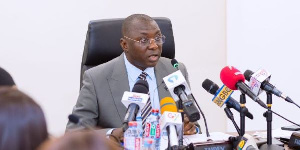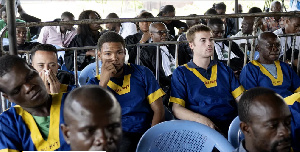Health News of Wednesday, 29 November 2023
Source: Dr Simon Badu, Contributor
Independence and inclusivity: Enhancing lives for individuals with Spina Bifida
A congenital disorder that affects the spinal cord, spina bifida frequently results in varying degrees of physical handicap. But we can improve the lives of those who suffer from this illness considerably if we have the proper resources, initiatives, and support. One of the main prerequisites for inclusion is physical space accessibility.
Accessible restrooms, enlarged doorways, and wheelchair ramps are essential for enabling people with spina bifida to move around public spaces on their own. Infrastructure-related community projects are essential to establishing spaces where people can move freely and engage in active participation.
In addition, technology has completely changed the way people with spina bifida can become independent. Enhanced independence has been made possible by assistive technology, including communication tools, specialized orthotics, and mobility aids. Cutting-edge advancements in exoskeletons and prosthetics have opened up possibilities for increased mobility and engagement in a range of activities.
In the fields of work and education, inclusiveness is crucial. Employers and educational institutions alike must embrace diversity by introducing accommodations like flexible scheduling, assistive technology, and an easily accessible curriculum. In order to support independence and integration into the workforce, programs that offer vocational training and career assistance specific to the skills of individuals with Spina Bifida are essential. Social
inclusion is just as vital as physical accessibility. Recreational programs created especially for people with spina bifida, counseling services, and community support groups provide priceless emotional and social support.
These platforms foster the growth of abilities and self-assurance required for independent living in addition to giving users a sense of community. Healthcare and family support are essential components of a comprehensive management
strategy for spina bifida. In addition to meeting medical needs, ongoing access to counseling, rehabilitation programs, and specialized medical care helps patients and their families deal with the difficulties brought on by the illness.
It is imperative to support and advocate for the rights of people with spina bifida through initiatives aimed at increasing awareness. Campaigns for public
education about the illness and the value of inclusivity help to create a society that is more compassionate and understanding.
In summary, communities, governments, healthcare providers, and people with Spina bifida themselves must work together to create inclusive environments and promote independence for these persons. We can enable people with spina bifida to lead happy, independent lives by putting accessibility first, embracing technology breakthroughs, encouraging education and employment possibilities, and fostering social inclusivity. Together, let's work to create a society where everyone can prosper and add to the vibrancy of their local communities, regardless of their level of skill.











